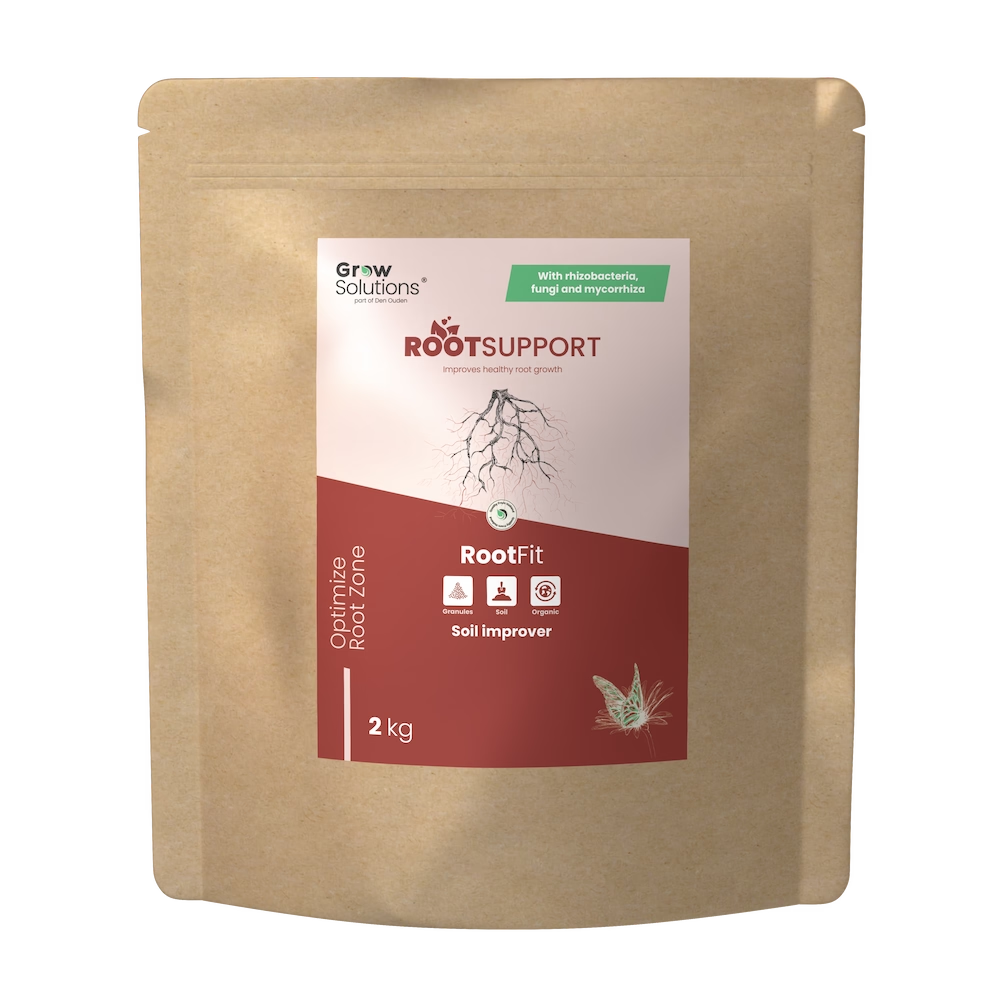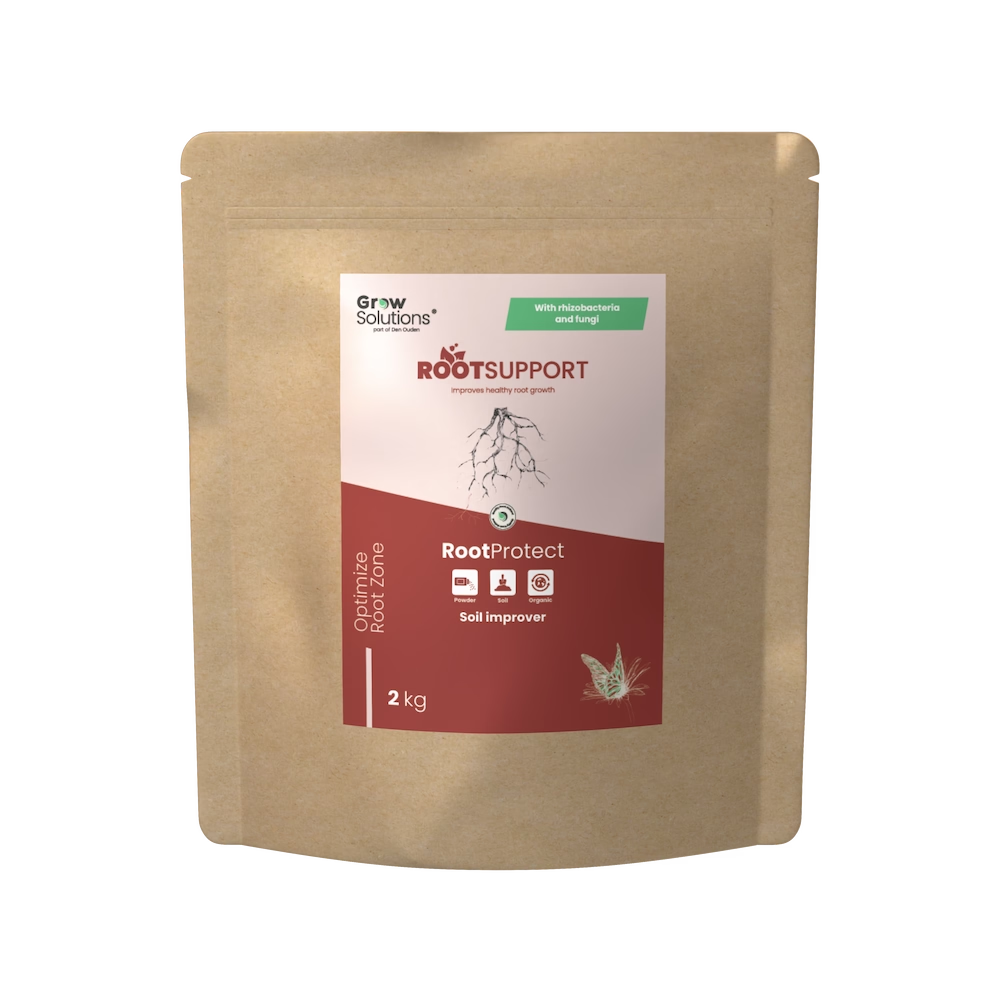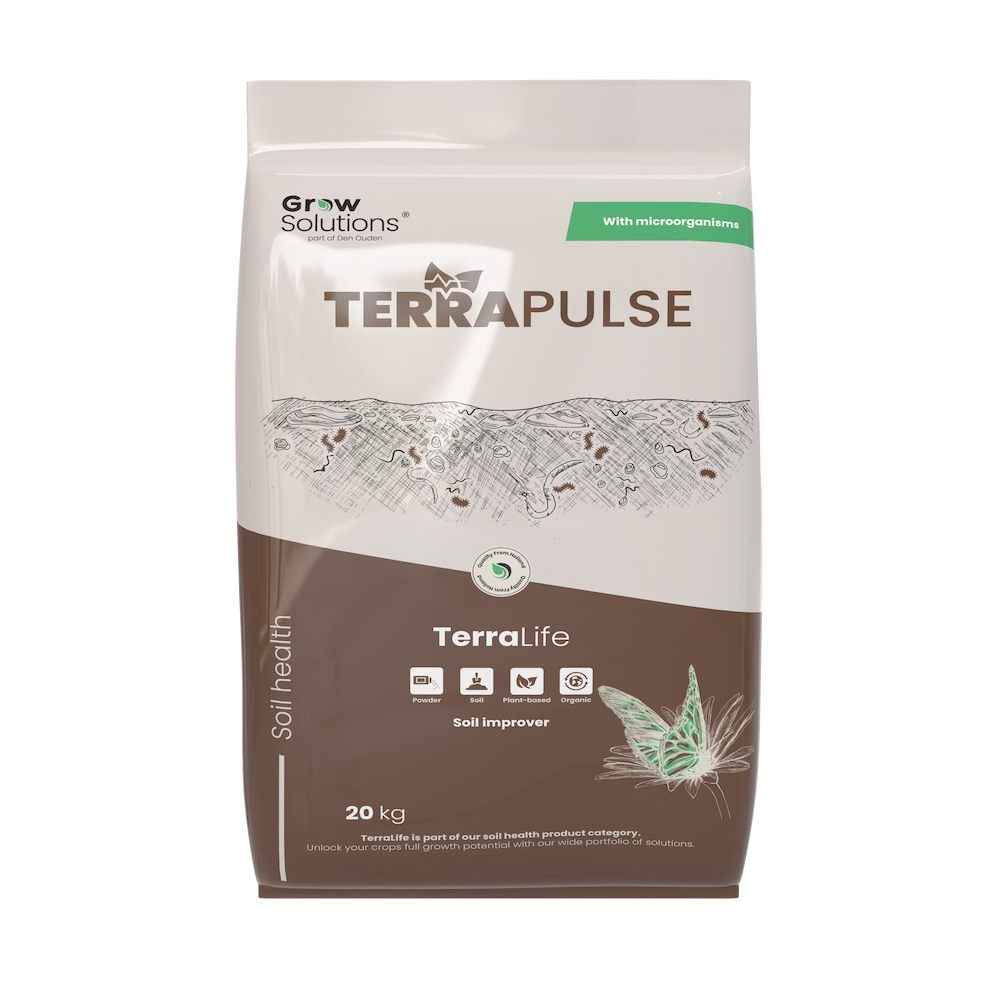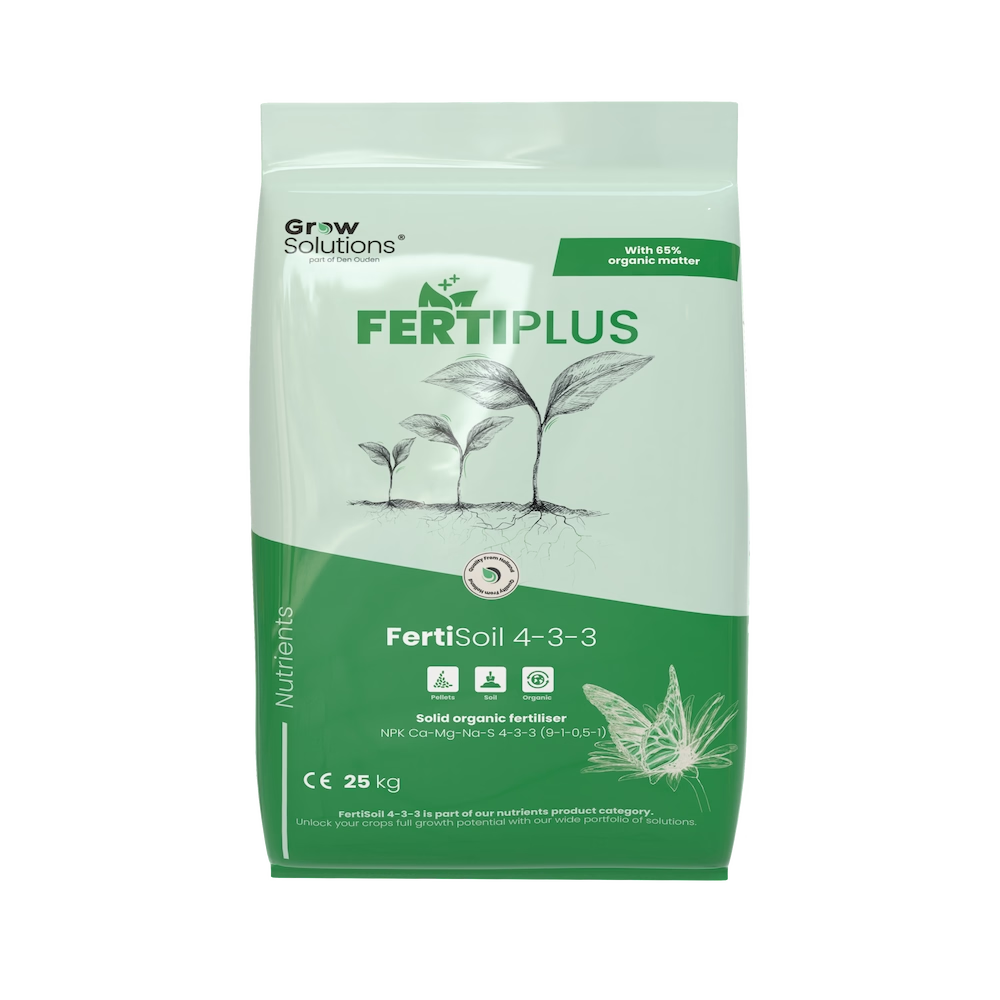RootFit
Root-improver, formerly known as Mycorgran 2.0
Contains various mycorrhizal fungi for an improved resilience and uptake of nutrients and water.
More Information
Benefits
Expands root zone
Due to the mycorrhiza colonisation the rootzone can expand up to 700%. Read more
>The colonization of mycorrhiza allows the root area to expand by up to 700%. The very fine fungal filaments formed by the mycorrhiza significantly increase the plant's absorption capacity because they can also reach soil micropores which are normally very hard to be reached. With an average 700% increase in root area, the plant benefits from a more extensive and efficient nutrient absorption system. Read less
Improves plant resilience during abiotic stress
Microorganisms improve water and nutrient uptake leading to less abiotic stress such as drought. Read more
>Microorganisms improve water and nutrient uptake, leading to reduced abiotic stresses, such as drought. Rhizobacteria play a crucial role here by making minerals in the soil around the fine uptake roots available to the plants. In addition, the increase in root surface area through mycorrhizal colonization also contributes to this improved uptake efficiency. The fine fungal threads formed by mycorrhizas increase the absorption area, allowing the plant to extract water and nutrients from the soil even more effectively. Read less
Buffers nutrients and makes it plant available
The nutrients will be buffered in the soil due to humic accids. Fulvic transports the nutrients to the plant. Read more
>Humic acids bind nutrients, while fulvic acids release them and transport them to the plant's roots. This process ensures longer retention of nutrients in the soil and the plant can absorb the nutrients more easily. Fulvic acid improves absorption of all fixed nutrients in the soil. For example fulvic acid releases phosphates and iron for the plant.Read less
Product information
Discover RootFit: a powerful soil improver developed for professional agriculture. RootFit expands the root zone, improves plant resilience during abiotic stresses such as drought, and buffers nutrients to make them available to the plant. Optimize soil with RootFit for a practical approach to sustainable agriculture and enhancing crop resilience.
Product suitable for use in organic farming in accordance with (EU) 2018/848, (EU) 2021/1165, NOP Regulation, Skal, Demeter and BIO-AUSTRIA Standards.
Dosage
Recommended quantities between 1,5-2 kg per hectare. Look for specific cultivation advice on the website
DetailsShelf life
2 years minimum, must be stored in a dry, frost-free place, away from direct sunlight
Execution
Application
Certification
Packages
Discover all the benefits of this product, download the product sheet for an overview of all the information.
Download BrochureWhere science meets sustainability
We pride ourselves on providing evidence-based solutions to growers around the world. Every claim we make about the efficacy of our products is backed by extensive research and field reports.
More about usWhere science meets sustainability
We pride ourselves on providing evidence-based solutions to growers around the world. Every claim we make about the efficacy of our products is backed by extensive research and field reports.
More about us
Ingredients and Fertilizers
Ingredients |
|---|
Fertilizers |
|---|
Products that combine well
With these products you will get even better results and yields from your crops.

Do you have questions?
Hello, I'm René, the BNL Sales manager of GrowSolutions. Do you have any questions? I'm happy to help you out!
- Rene Verhoeven
Other products
Other solutions that work for different growing techniques.
RootFit+

With rhizobacteria, fungi and mycorrhiza
RootFit+
Expands root zone
See All Benefits
RootProtect

With rhizobacteria and fungi
RootProtect
Supports protection of root zone
See All Benefits
TerraLife

With microorganisms
TerraLife
Restores soil life
See All Benefits
Frequently asked questions
What are biostimulants and how can they benefit my crops?
Biostimulants are products that improve crop growth, development and stress response without directly providing nutrients. They can increase yields, improve resistance to stress and improve crop quality.
What advantages do organic fertilisers offer over synthetic fertilisers for my crops and soil?
Organic fertilisers contain natural materials such as compost, animal manure and plant materials. They improve soil structure, increase organic matter content and stimulate soil life, resulting in healthier plants and increased yields.
How can I improve soil life and why is this important for my crops?
A healthy soil life is essential for fertile soil and healthy crops. It improves soil structure, nutrient availability and water retention, and reduces the need for external inputs such as fertilisers and pesticides.
What specific problems can biostimulants and organic fertilisers help solve in cultivation?
Biostimulants and organic fertilisers can help solve specific problems such as poor soil quality, low yields, stress due to extreme weather conditions and lack of nutrients.
How can I choose the right biostimulant or organic fertiliser for my specific soil and crop needs?
Choosing the right biostimulant or organic fertiliser depends on factors such as soil type, crop needs, climatic conditions and available budget.
What are some sustainable practices I can implement to improve the health of my plants and increase yields?
Sustainable practices such as crop rotation, organic soil improvers and integrated pest management can improve plant health and increase yields.
Are there specific guidelines for the use of biostimulants and organic fertilisers in cultivation?
Yes, there are specific guidelines for the use of biostimulants and organic fertilisers, such as application times, rates and mixability with other products. These guidelines can vary depending on the type of crop and soil.
How can I measure the effectiveness of biostimulants and organic fertilisers in my field?
The effectiveness of biostimulants and organic fertilisers can be measured by parameters such as crop yield, crop quality, soil health and resistance to stressors. Den Ouden GrowSolutions also has the ability to perform a plant sap analysis, chroma analysis and mycorrhiza analysis. With these analyses, the quality of the soil/plant, the needs of the soil/plant and the effect of the products can be determined.





